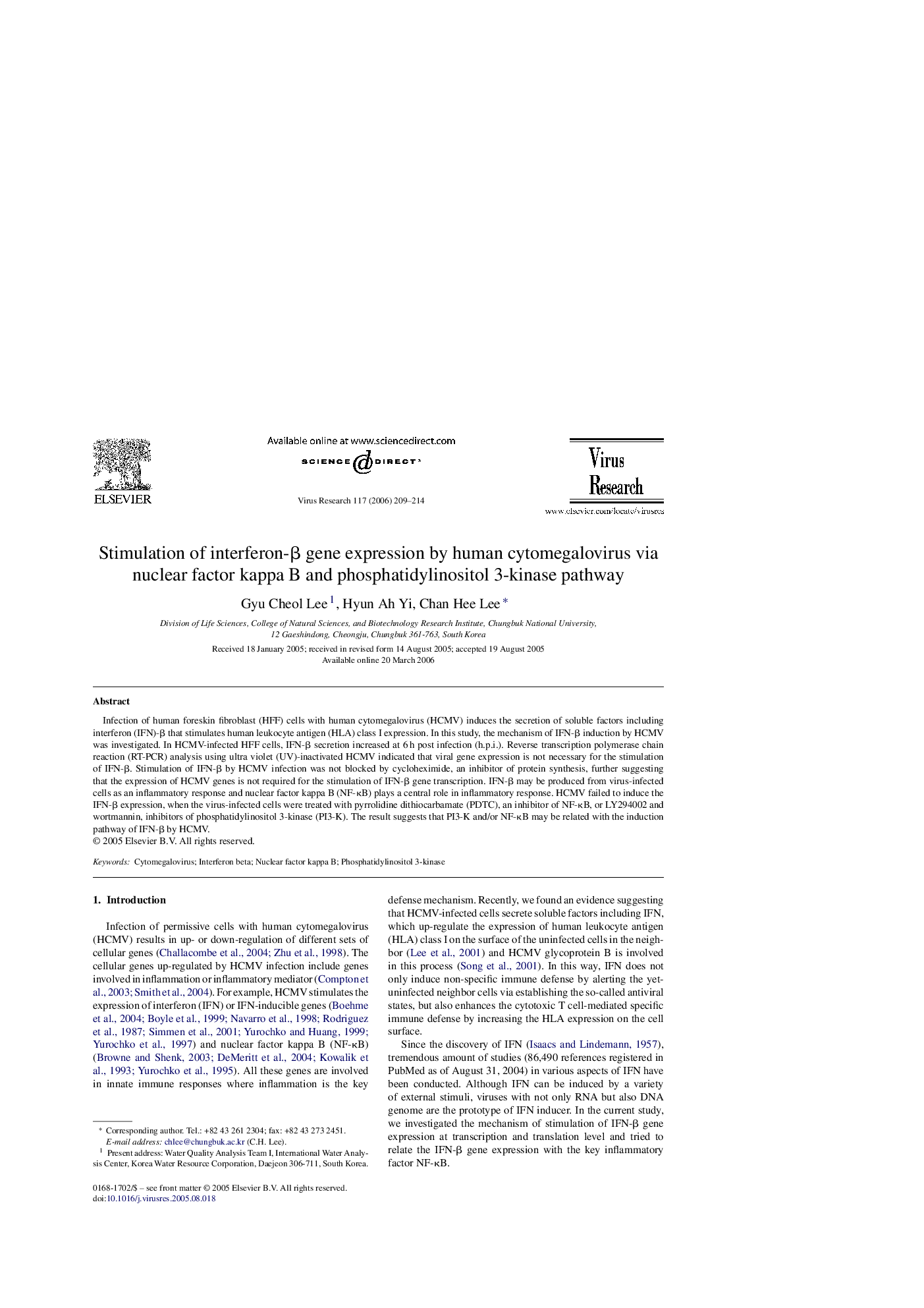| Article ID | Journal | Published Year | Pages | File Type |
|---|---|---|---|---|
| 3431307 | Virus Research | 2006 | 6 Pages |
Infection of human foreskin fibroblast (HFF) cells with human cytomegalovirus (HCMV) induces the secretion of soluble factors including interferon (IFN)-β that stimulates human leukocyte antigen (HLA) class I expression. In this study, the mechanism of IFN-β induction by HCMV was investigated. In HCMV-infected HFF cells, IFN-β secretion increased at 6 h post infection (h.p.i.). Reverse transcription polymerase chain reaction (RT-PCR) analysis using ultra violet (UV)-inactivated HCMV indicated that viral gene expression is not necessary for the stimulation of IFN-β. Stimulation of IFN-β by HCMV infection was not blocked by cycloheximide, an inhibitor of protein synthesis, further suggesting that the expression of HCMV genes is not required for the stimulation of IFN-β gene transcription. IFN-β may be produced from virus-infected cells as an inflammatory response and nuclear factor kappa B (NF-κB) plays a central role in inflammatory response. HCMV failed to induce the IFN-β expression, when the virus-infected cells were treated with pyrrolidine dithiocarbamate (PDTC), an inhibitor of NF-κB, or LY294002 and wortmannin, inhibitors of phosphatidylinositol 3-kinase (PI3-K). The result suggests that PI3-K and/or NF-κB may be related with the induction pathway of IFN-β by HCMV.
